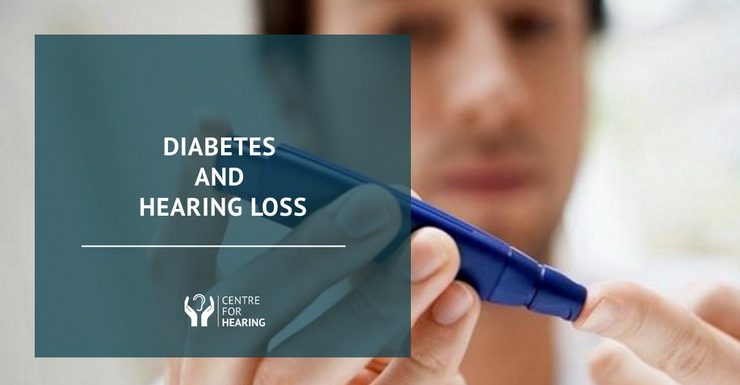We have already busted the myth that hearing loss is purely an age-related disorder!
Several factors contribute to hearing loss – including illnesses, head injuries and certain medication.
Researchers believe that the presence of diabetes could contribute to hearing loss or deafness.
In fact, hearing loss has been shown to be twice as common in adults with diabetes compared to those without the disease.
Let’s understand the relationship between diabetes and hearing loss!

What Causes Hearing Loss in Diabetes Patients?
Diabetes seems to affect hearing in several ways.
- When blood sugar rises, there is a breakdown of nerves in the ears, the same kind of nerve damage that causes tingling and other symptoms in the fingertips and toes.
- Researchers believe prolonged high blood glucose levels may lead to hearing loss by affecting the supply of blood or oxygen to the tiny nerves and blood vessels of the inner ear.
- Over time, the nerves and blood vessels become damaged, affecting the person’s ability to hear. In addition, our hearing mechanisms rely on specialized cells called hair cells. They are very fragile and susceptible to changes in the environment, including the effect of increased glucose in the blood.
It has been observed that while there is a link between diabetes and hearing loss across all frequencies, with the impairment being most evident at high frequencies.
Additionally, hearing loss can be a maternally inherited problem with for some people with diabetes.
Maternally Inherited Diabetes and Deafness (MIDD) is a non-insulin-dependent type of diabetes that usually develops before the age of 40 years as a result of a mutation in mitochondrial DNA.
Here are some ways a person suffering from Diabetes can protect his/her hearing.

How to Protect Hearing from Diabetes Complications?
In order to protect your hearing from Diabetes, considering making the following changes to your lifestyle.
1. Control Blood Sugar…
Managing type 1 and type 2 diabetes can be hard work at times. The best way to protect your hearing from damage due to diabetes is to maintain good control of your blood sugar. That includes taking your prescribed medications, eating a healthy diet, controlling portions, and making exercise a part of the daily routine. Strict glycemic control has overall benefits for patients, including hearing.
A healthy diet also helps you control your weight, which could also lead to issues in your blood sugar levels.
2. Don’t Smoke…
Smoking speeds hearing loss on its own but acts as a risk multiplier when combined with other hearing loss risk factors, such as poorly controlled diabetes, working in an environment full of loud noise (more than once a month for a year).
3. Manage Loud Noise…
When researchers look at hearing loss, they consider a noisy work environment to be one in which you have to raise your voice to be heard. This kind of environment increases your risk of hearing loss. If you can’t switch tasks or jobs, consider using noise cancelling or reducing devices to protect your ears.
4. Schedule Regular Health Checks…
Hearing impairment should be considered a complication of elevated blood sugar levels. Patients with pre-diabetes and diabetes should have their hearing checked annually to ensure that their ears stay healthy as their blood sugar is brought under control.
If you think diabetes has affected your hearing, tell your doctor or ask for a referral to an audiologist for an examination. Although hearing loss is not reversible, a hearing aid can help enormously. We hope the above guide on the correlation between diabetes and hearing loss has helped you gain some perspective.
Don’t take you hearing health for granted – it is as important as your overall health!
Don’t strain yourself to hear anymore! At Centre For Hearing, we provide the most comprehensive diagnostic facilities and the latest technology in hearing aids.
Call us on +91 9811227269 for a FREE CONSULTATION!
Locate a Hearing Aids Centre Near You:

